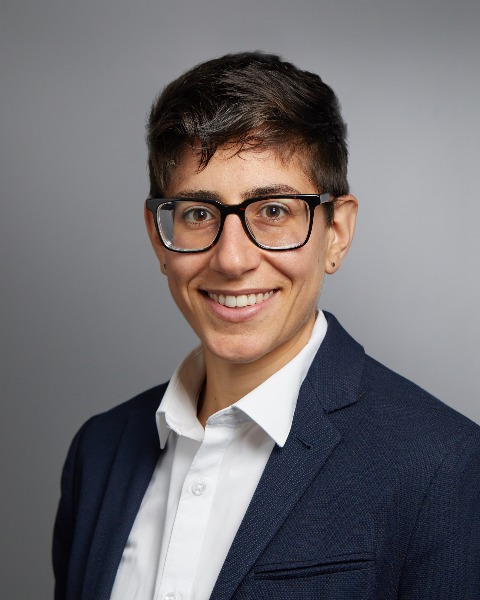Symposia
LGBTQ+
2 - (SYM 130) Development of a Community-informed Alcohol Intervention for Sexual Minority Women (Project 4U)

Deja Clement, M.P.H., M.S. (she/her/hers)
Clinical Psychology Doctoral Candidate
Massachusetts General Hospital
CHELSEA, Massachusetts, United States
Jacklyn D. Foley, Ph.D. (she/her/hers)
Postdoctoral Fellow
Massachusetts General Hospital
Boston, Massachusetts, United States- AB
Aliza Barnett, MPH (she/they)
Senior Research Assistant
The Fenway Institute
Boston, Massachusetts, United States 
Jillian R. Scheer, Ph.D.
Assistant Professor
Syracuse University
Syracuse, New York, United States- TP
Tonia Poteat, PA-C, MPH, PhD (she/her/hers)
Professor, Associate Director of the Duke Center for AIDS Research (CFAR) Developmental Core
Duke University School of Nursing
Durham, North Carolina, United States - WI
Whitney Irie, MSW, PhD (she/her/hers)
Assistant professor/Adjunct Faculty Member/Lecturer
Boston College School of Social Work/The Fenway Institute/Harvard Medical School
Boston, Massachusetts, United States - MM
Michal McDowell, MPH, MD (she/they)
Psychiatrist
Massachusetts General Hospital/Harvard Medical School
Boston, Massachusetts, United States - AB
Abigail W. Batchelder, M.P.H., Ph.D. (she/her/hers)
Boston University School of Medicine & Department of Psychiatry Boston Medical Center
Boston, Massachusetts, United States
Speaker(s)
Co-author(s)
Background: Often under-represented and underserved, sexual minority women, including those who are gender expansive (SMW+; lesbian, bisexual, queer cis- and trans-women and nonbinary individuals) are more likely to engage in hazardous drinking (HD; i.e., drinking that increases the risk of harmful consequences) and experience alcohol-related difficulties, but less likely to be satisfied with HD treatment compared to heterosexual women and sexual minority men. Investigation of barriers and facilitators to engagement in HD treatment among SMW+ are needed to inform the development of an evidence-informed HD intervention to meet the needs of this population and ultimately reduce prominent sexual orientation related disparities in HD.
Methods: Qualitative methods were used to solicit feedback from SMW+ and healthcare providers (i.e., behavioral & reproductive health providers) on barriers and facilitators to engagement in HD among SMW+, needed adaptions to an evidence-informed alcohol intervention to address these unmet needs, as well as perceptions of feasibility and acceptability of an adapted intervention. Two focus groups (n = 31) with providers and 10 individual interviews with SMW+ were conducted. Thematic analysis was used to analyze the results and a consensus was identified.
Results: Results from both individual interviews and focus groups indicated a need for 1) increased cultural humility, knowledge, and representation from HD treatment providers, 2) increased integration of intersectional approaches and perspectives into HD treatment and 3) inclusion of broader psycho-behavioral strategies or skills to cope with correlates of HD (i.e., discrimination, traumatic stress, psychological distress). Additional insights indicated a need for SMW+ inclusive non-alcoholic social spaces and provider discomfort in addressing HD among their SMW+ patients, particularly among those who hold intersectional identities. These findings are particularly salient given the setting, an LGBTQ+-focused community health center, highlighting gaps in provider knowledge of barriers to care for their SMW+ patient population.
Conclusion: Engaging SMW+ and healthcare providers in the adaptation interventions has the capacity to bring evidence-informed HD interventions to SMW+. Overall, our results highlight a need for alcohol treatments that include broader coping skills, the development of safe non-alcoholic social spaces for SMW+, and provider training in SMW+ specific experiences and cultural competence related to HD treatment.

.png)
